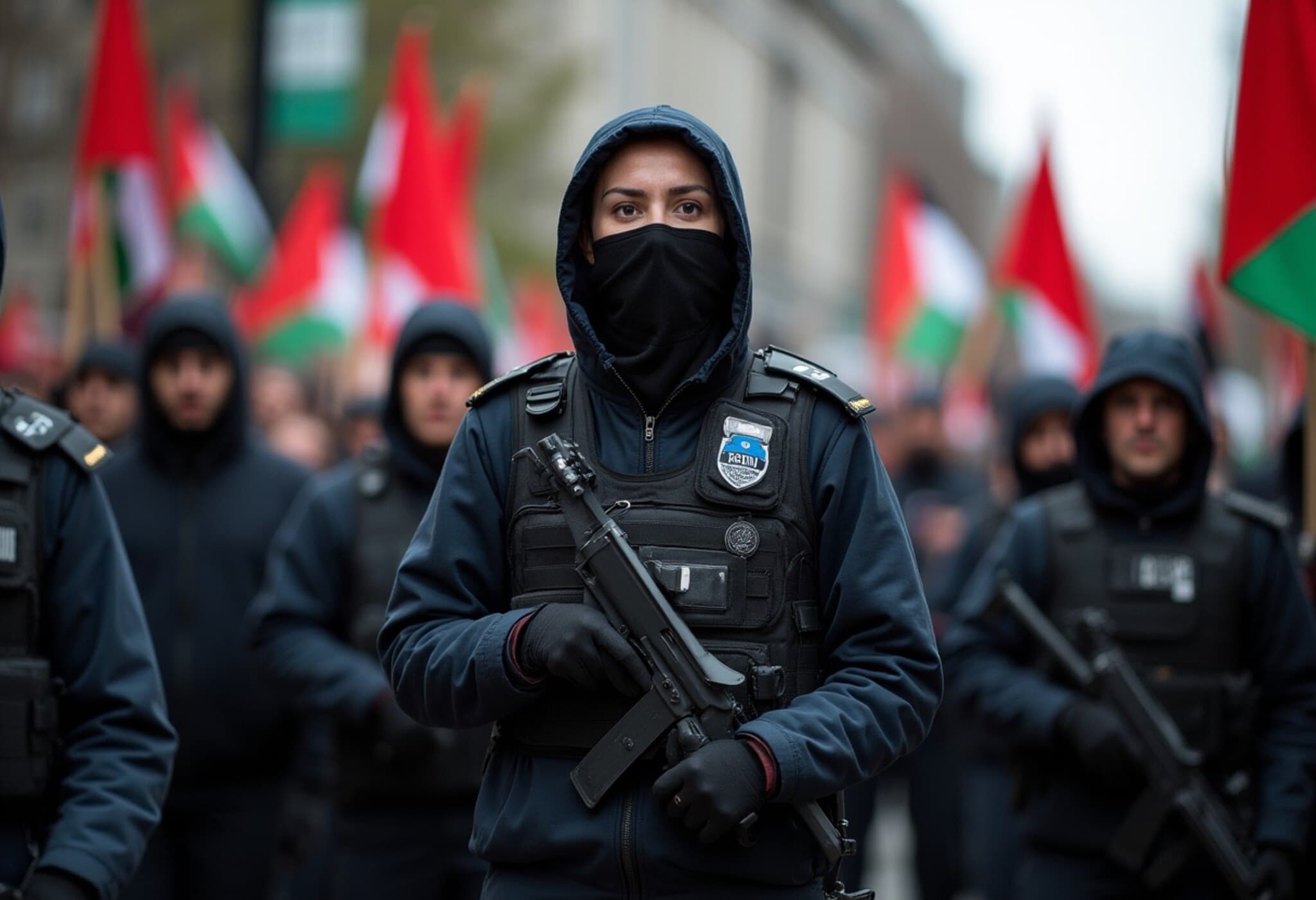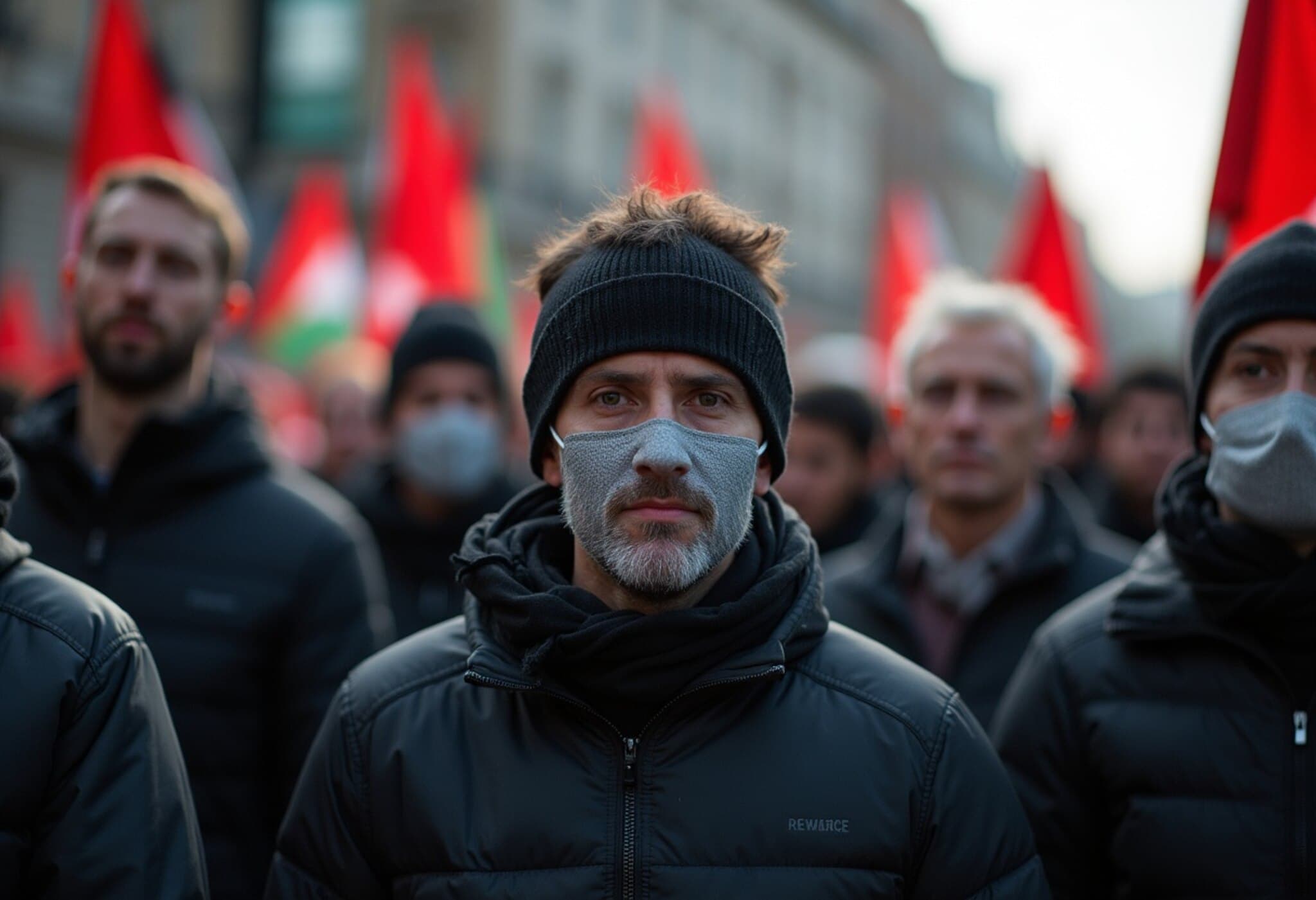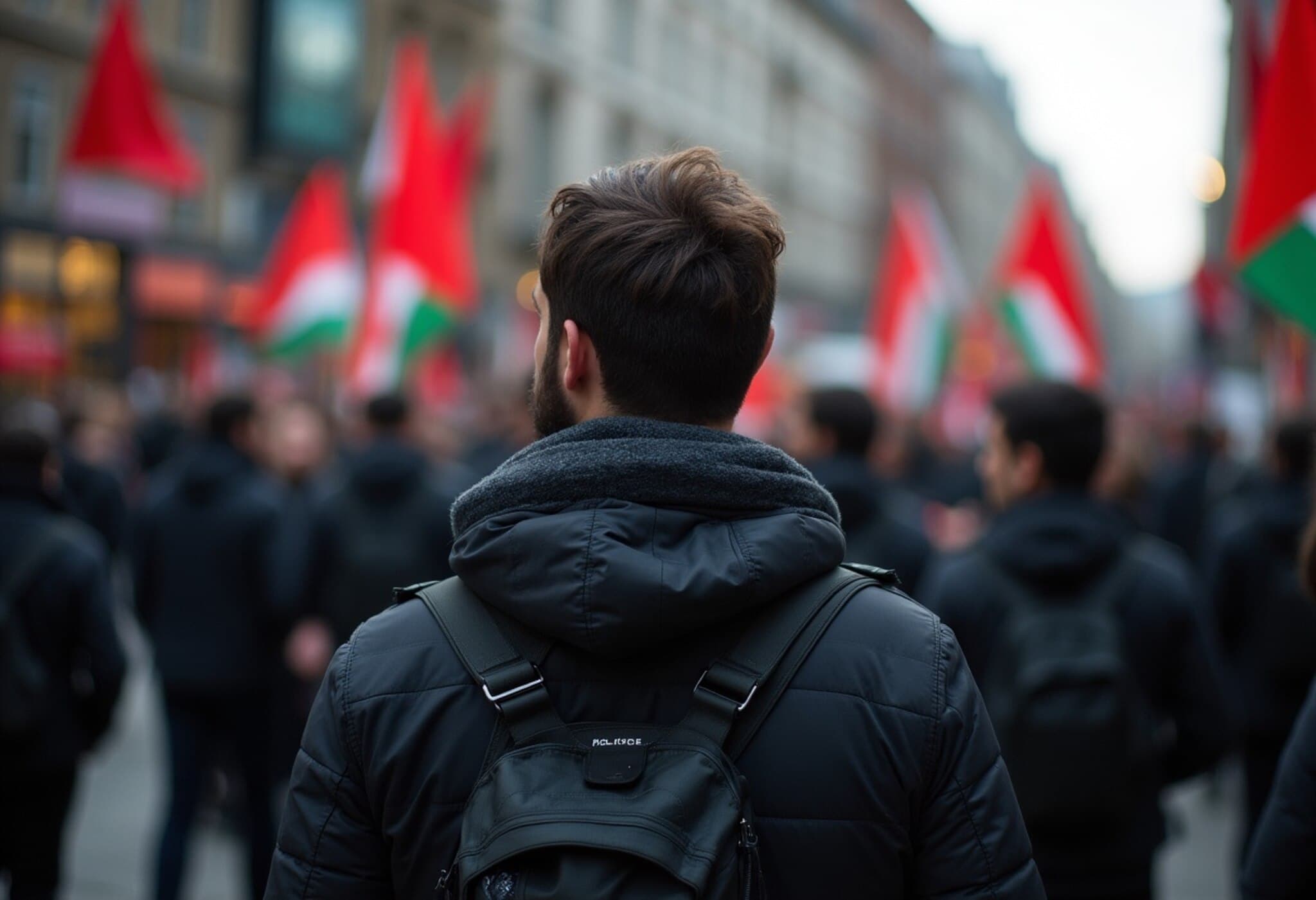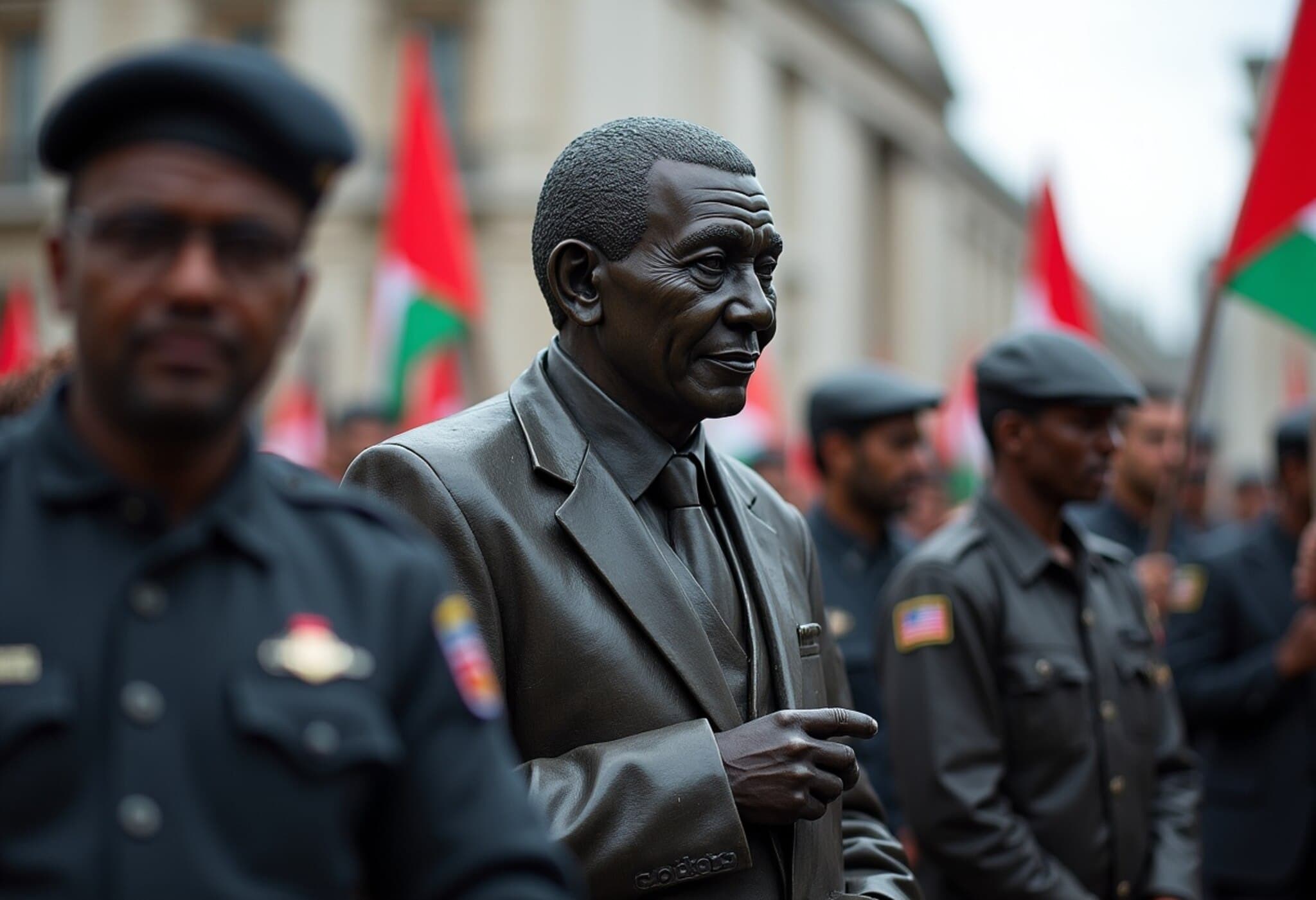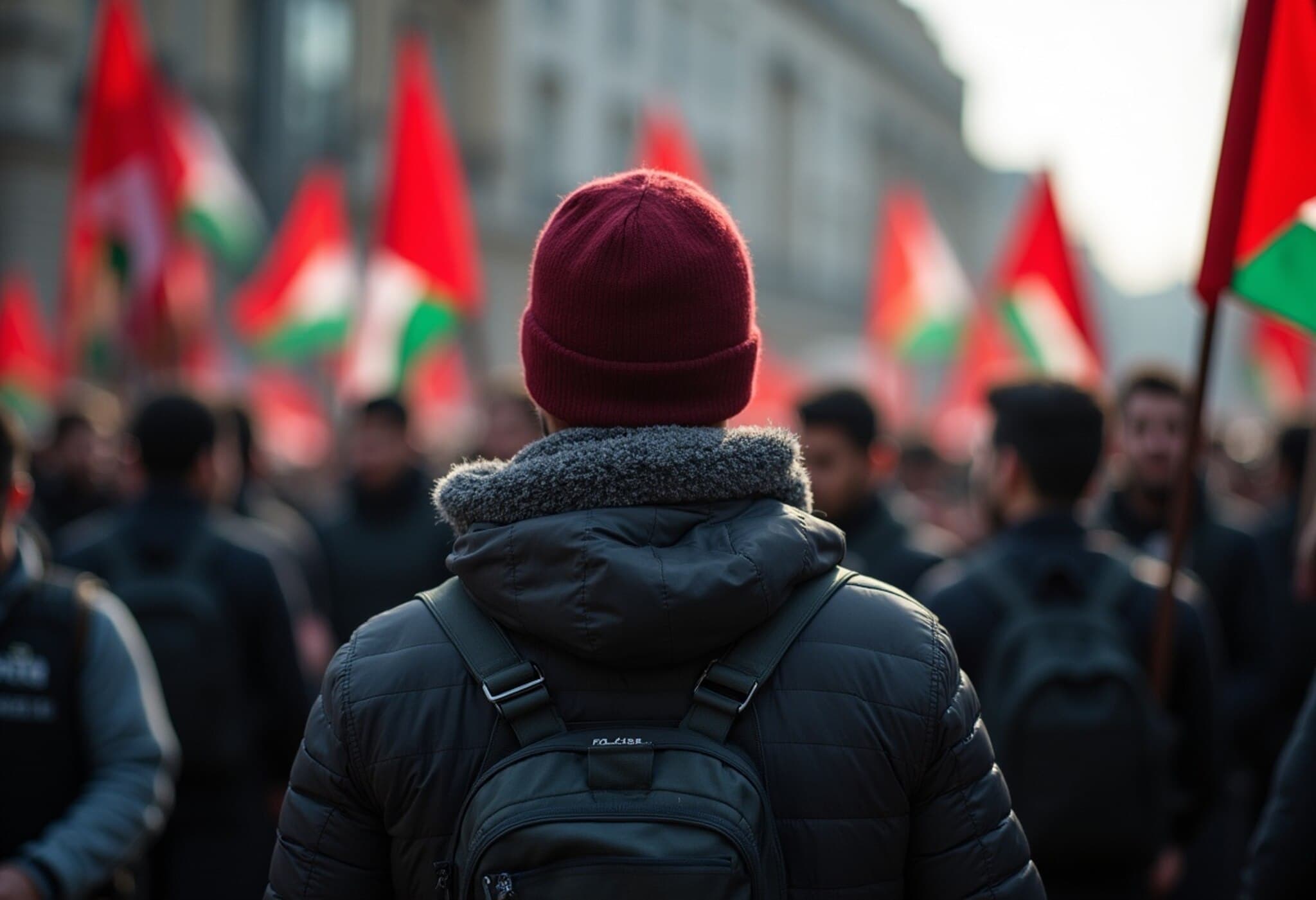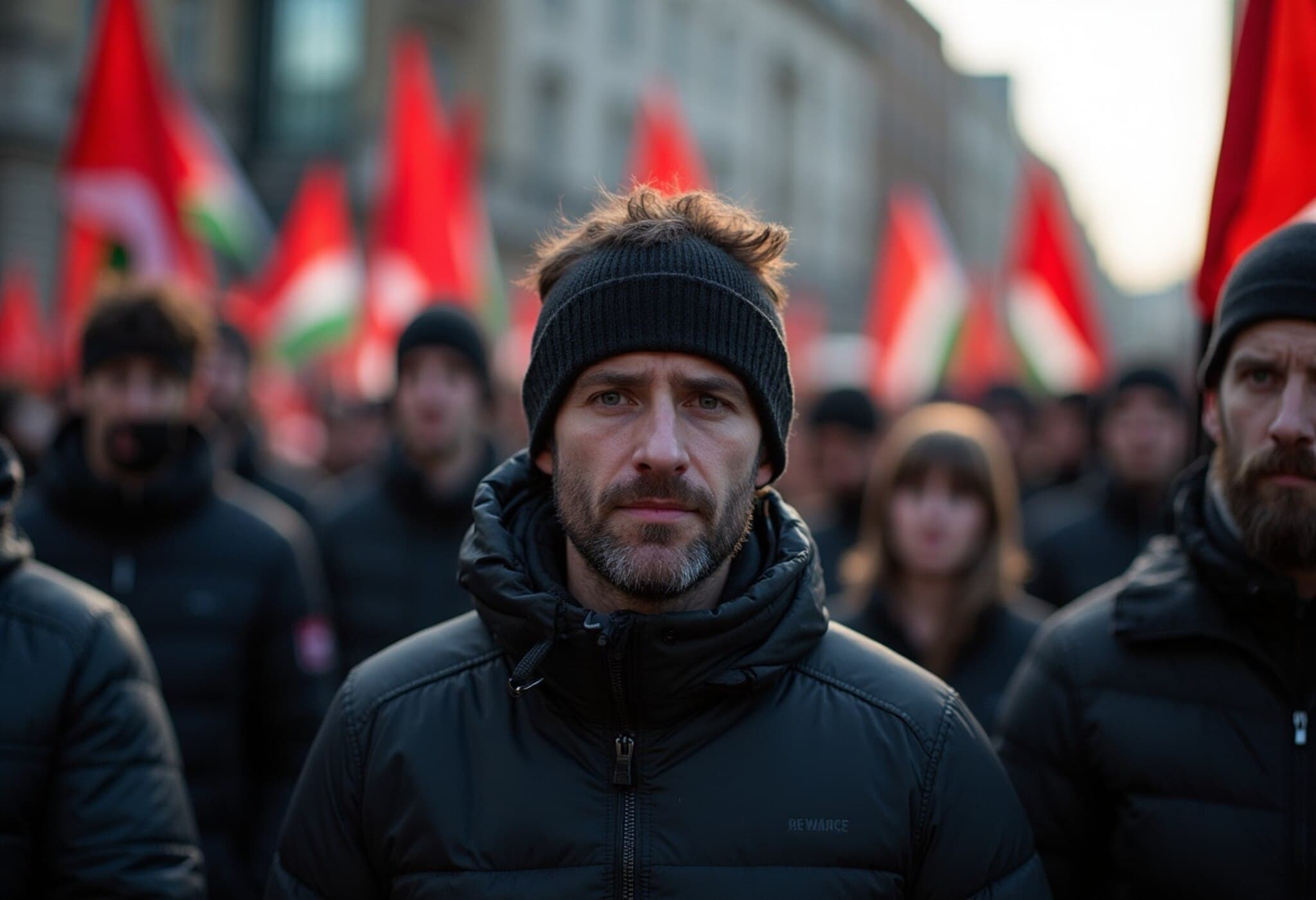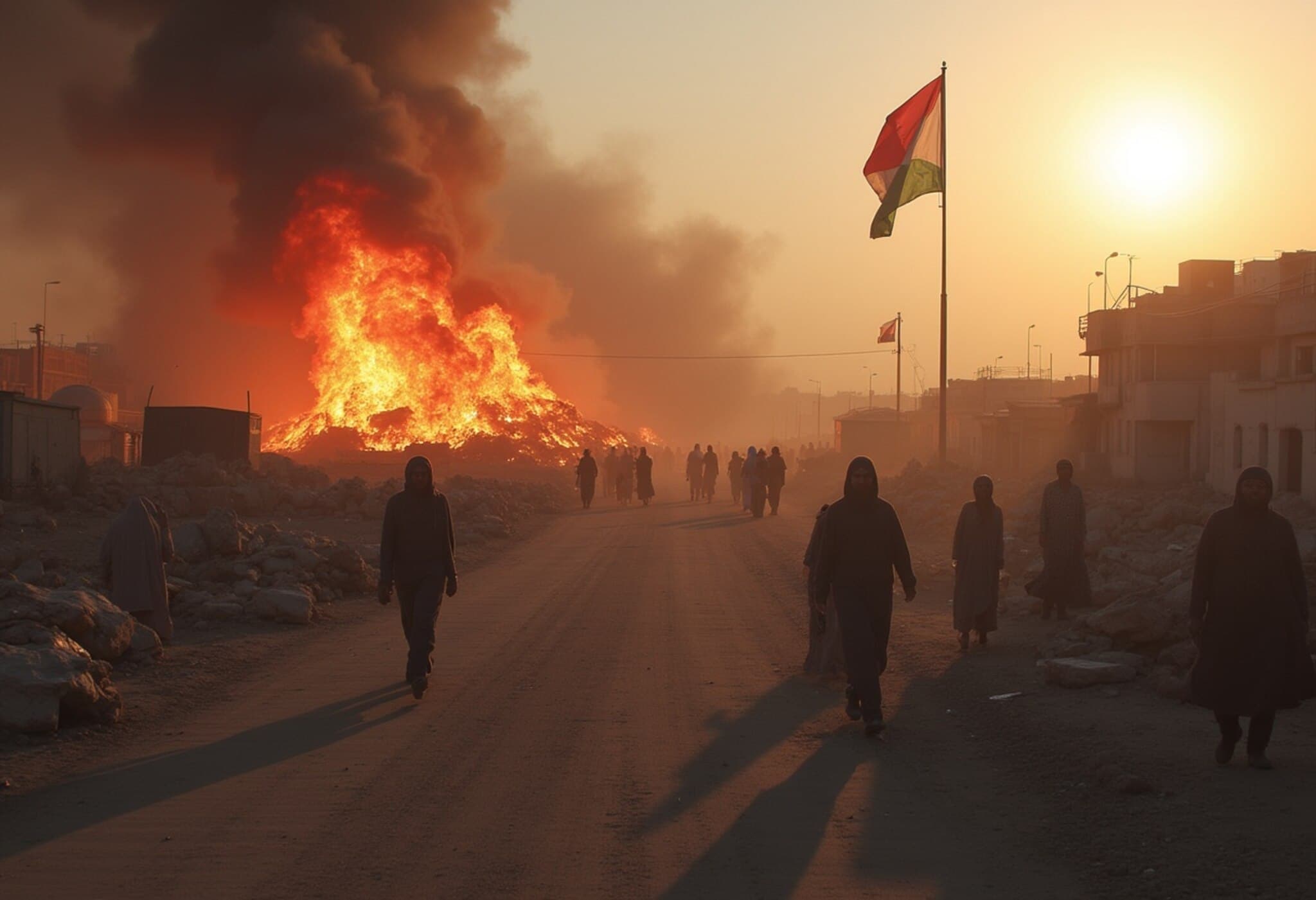Mass Arrests in London Following Police Clampdown on Pro-Palestine Demonstrations
In a significant display of law enforcement action, over 40 demonstrators were arrested by London’s Metropolitan Police on July 12, 2025, during a rally supporting the activist group Palestine Action. The protests took place near the Mahatma Gandhi statue in Parliament Square, marking the second consecutive weekend of intense confrontations since the UK government outlawed the organisation under stringent anti-terrorism legislation.
Background: The Government’s Proscription of Palestine Action
Earlier this month, UK lawmakers approved the proscription of Palestine Action under the Terrorism Act 2000, a move that criminalizes membership or public support of the group with potentially severe prison sentences, reaching up to 14 years. The proscription came swiftly on the heels of a high-profile incident where activists allegedly responsible for a break-in at a southern England air force base sprayed two aircraft with red paint, resulting in damages estimated at £7 million (approximately $9.55 million).
Despite last-ditch legal challenges by Palestine Action in the High Court, which failed to halt the ban, the government doubled down, emphasizing public safety concerns linked to the group’s militant protest tactics.
Details of the Recent Police Action and Protest Response
- The Metropolitan Police tweeted updates confirming 41 arrests related to support for the banned organisation and an additional arrest for common assault during Saturday's protests.
- Video footage captured officers moving in on demonstrators who gathered peacefully with placards advocating for Palestine Action’s causes.
- The police swiftly cleared Parliament Square by mid-afternoon, signaling a strong stance against any further potential unrest.
Activist and Public Reactions
Rights campaigners and advocacy groups, notably Defend Our Juries, condemned what they describe as an "Orwellian" crackdown. In a statement to AFP, a spokesperson criticized the police for silencing dissenting voices by equating pro-Palestinian activism with terrorism.
"Who exactly do the police serve when they arrest peaceful protesters opposing genocide and raising awareness of Palestine's plight?" the campaign group questioned.
These protests follow a similar crackdown just a week earlier when 29 individuals—including a priest and some healthcare workers—were detained under the new anti-terrorism provisions.
Legal, Social, and Policy Implications
The UK government's decision to invoke anti-terror laws against Palestine Action highlights the tension between national security measures and preservation of democratic freedoms such as free speech and peaceful assembly. This development underscores an urgent need for ongoing public dialogue about where the boundaries lie for activism viewed through the prism of public safety and security concerns.
From a policy analysis perspective, the move raises questions on the potential chilling effects on civil liberties, especially for minority groups advocating international human rights. Moreover, the legal threshold for proscribing organisations on grounds of terrorism is a critical issue in UK law, demanding transparency and rigorous judicial oversight to prevent overreach.
Looking Ahead: The Broader Context
Amid escalating tensions in the Middle East, the domestic response in the UK reflects wider geopolitical sensitivities and challenges in addressing activism intersecting with foreign policy. The way the UK handles such cases could set precedents affecting future protests and advocacy related to international conflicts.
Experts suggest that while upholding law and order is vital, it is equally important to ensure that peaceful expression and democratic dissent are not unduly stifled. A balanced approach that distinguishes violent extremism from legitimate political expression remains a cornerstone of democratic societies.
Editor’s Note
The police crackdown on pro-Palestine protests in London illustrates the complex balancing act governments face between maintaining security and protecting fundamental rights. As arrests continue under anti-terrorism legislation, critical questions emerge about the scope of these laws and their impact on democratic freedoms.
Readers are invited to reflect on the implications of such legal measures for civil activism, the safeguards needed to prevent abuse, and the broader societal conversation on how democracies should respond to contentious political movements in an era of heightened security concerns.

